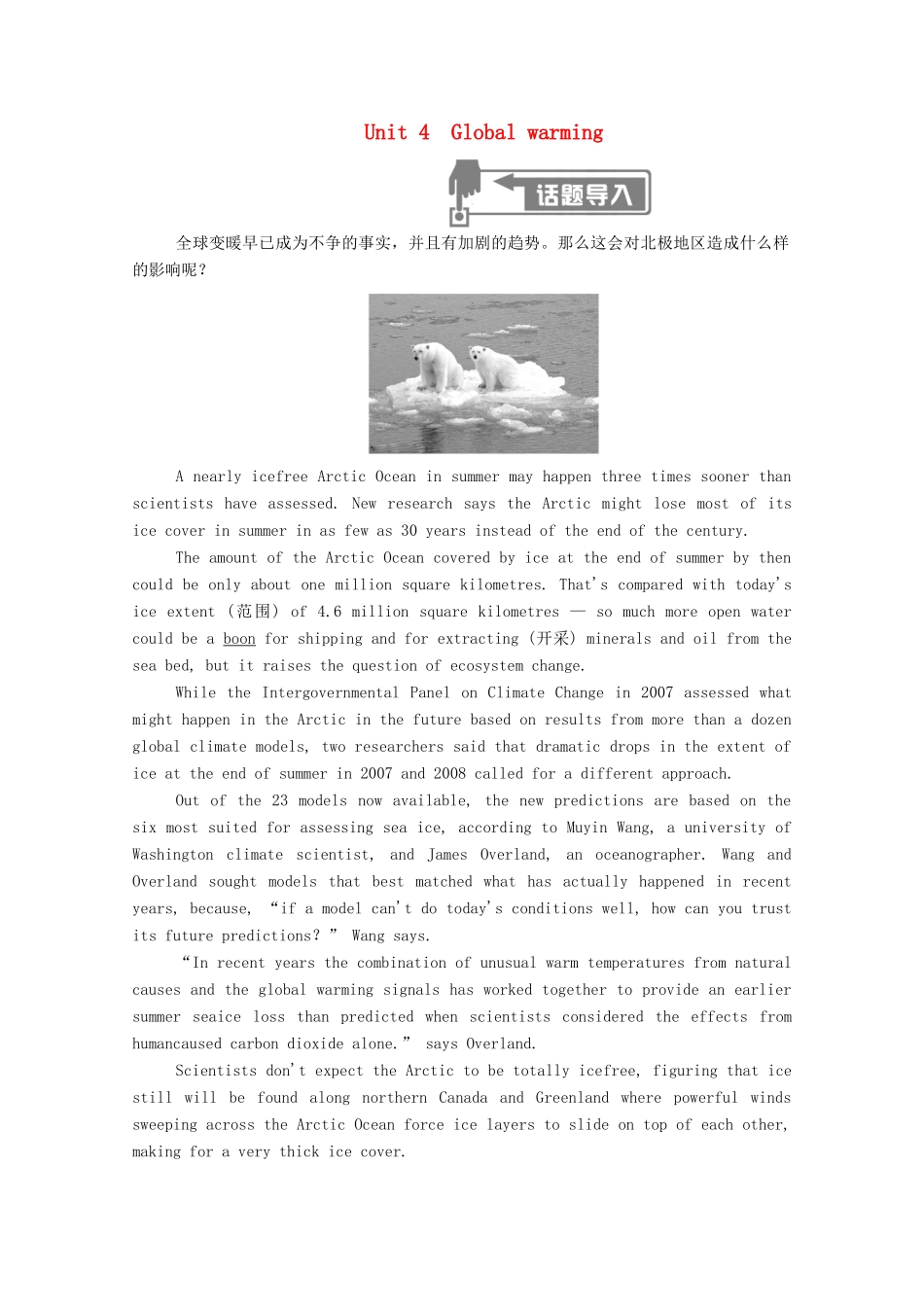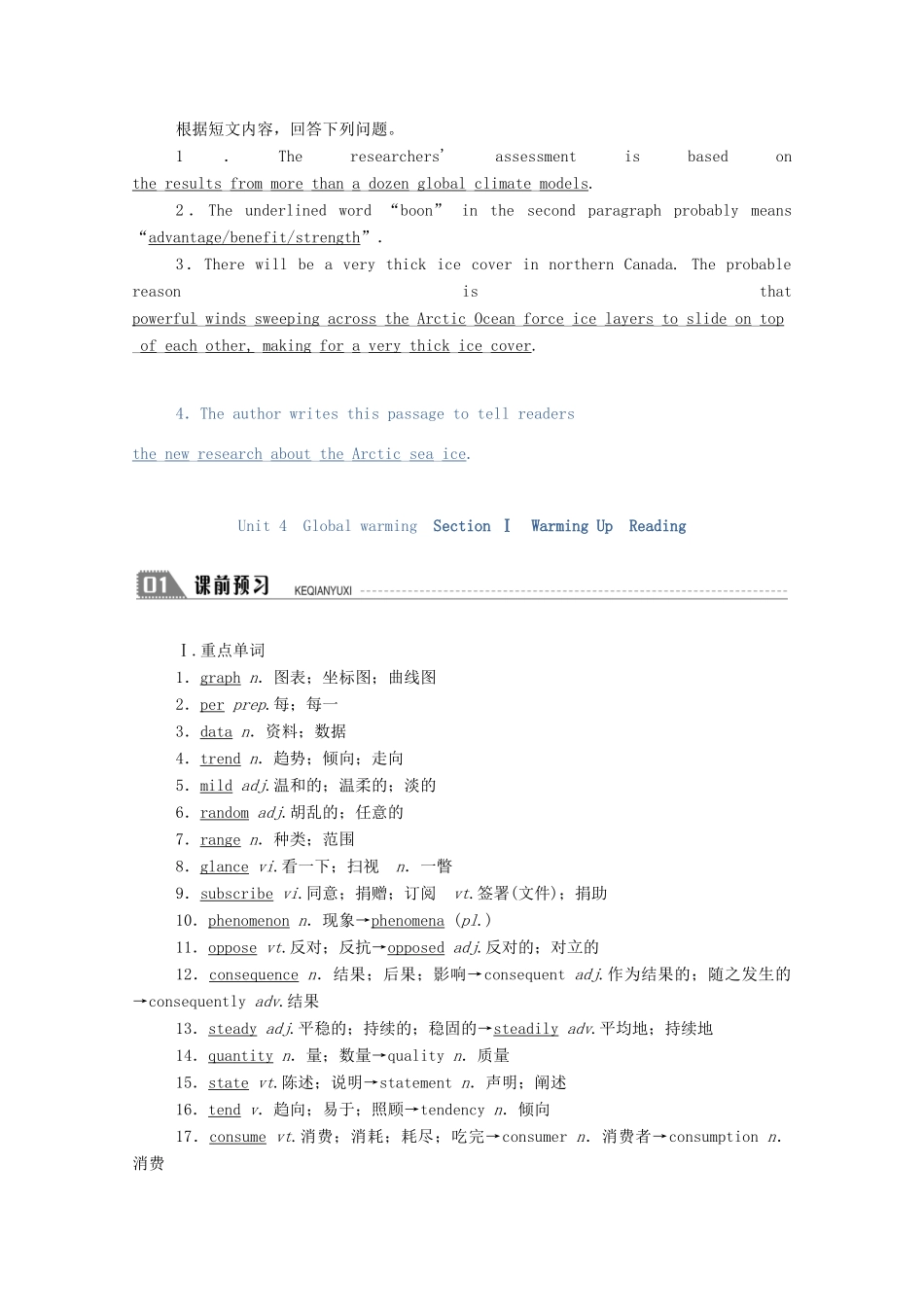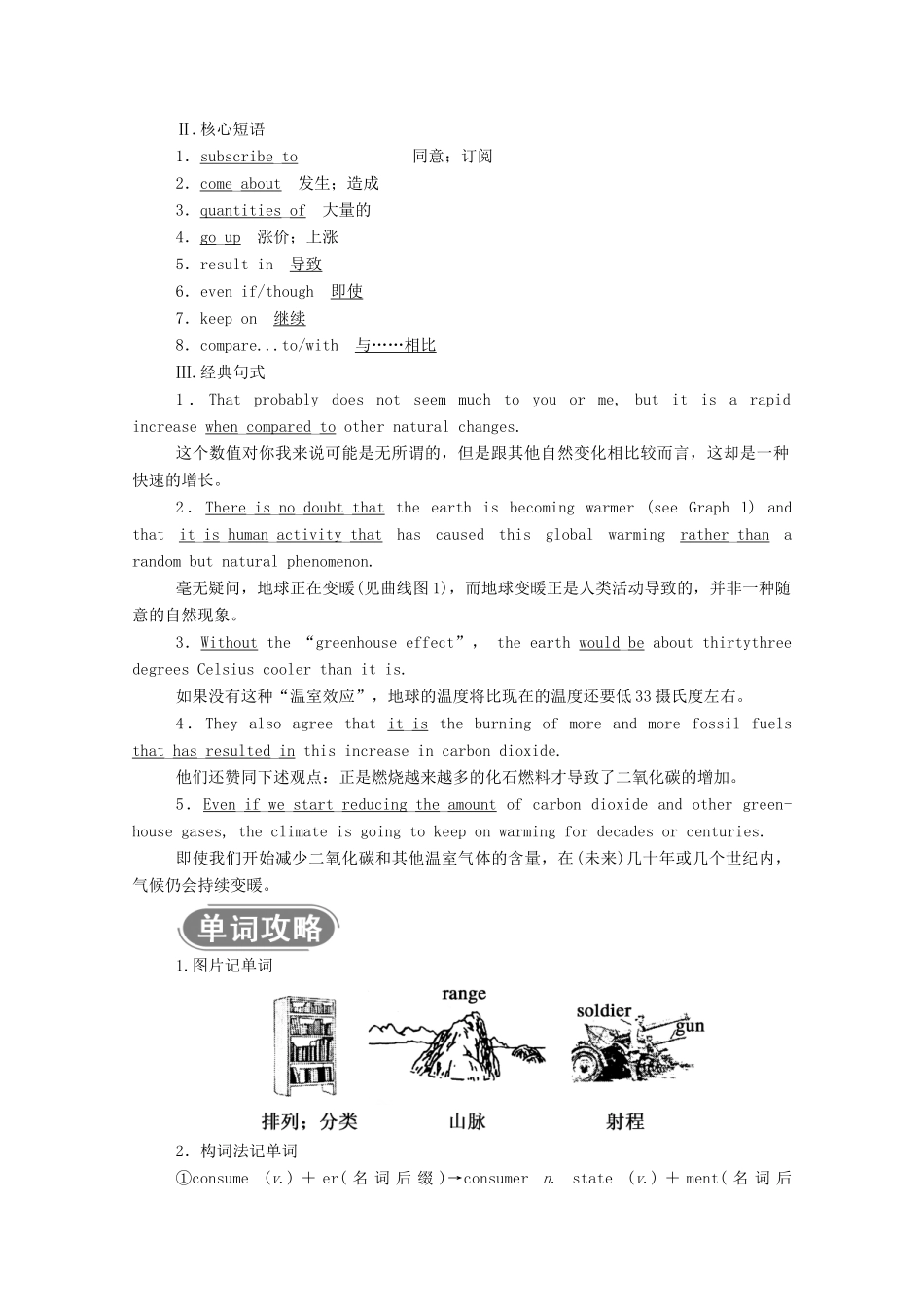Unit 4 Global warming 全球变暖早已成为不争的事实,并且有加剧的趋势。那么这会对北极地区造成什么样的影响呢?A nearly icefree Arctic Ocean in summer may happen three times sooner than scientists have assessed. New research says the Arctic might lose most of its ice cover in summer in as few as 30 years instead of the end of the century.The amount of the Arctic Ocean covered by ice at the end of summer by then could be only about one million square kilometres. That's compared with today's ice extent (范围) of 4.6 million square kilometres — so much more open water could be a boon for shipping and for extracting (开采) minerals and oil from the sea bed, but it raises the question of ecosystem change.While the Intergovernmental Panel on Climate Change in 2007 assessed what might happen in the Arctic in the future based on results from more than a dozen global climate models, two researchers said that dramatic drops in the extent of ice at the end of summer in 2007 and 2008 called for a different approach.Out of the 23 models now available, the new predictions are based on the six most suited for assessing sea ice, according to Muyin Wang, a university of Washington climate scientist, and James Overland, an oceanographer. Wang and Overland sought models that best matched what has actually happened in recent years, because, “if a model can't do today's conditions well, how can you trust its future predictions?” Wang says.“In recent years the combination of unusual warm temperatures from natural causes and the global warming signals has worked together to provide an earlier summer seaice loss than predicted when scientists considered the effects from humancaused carbon dioxide alone.” says Overlan...


